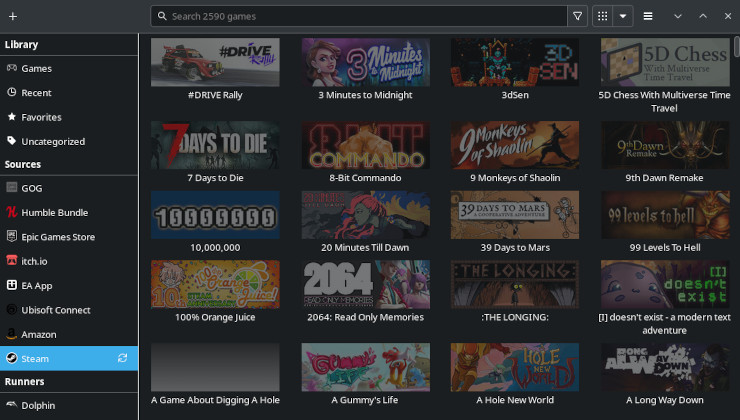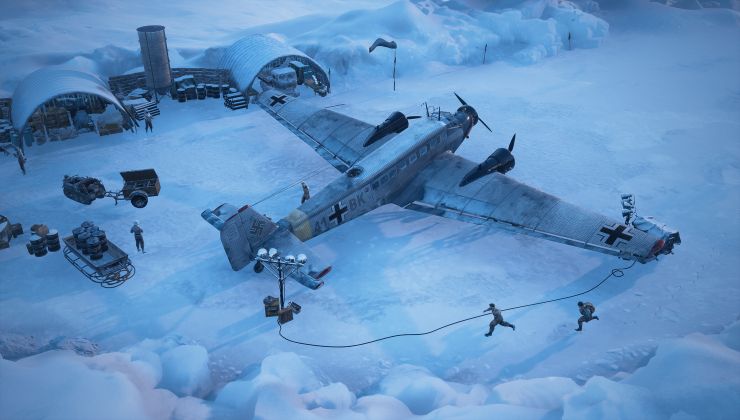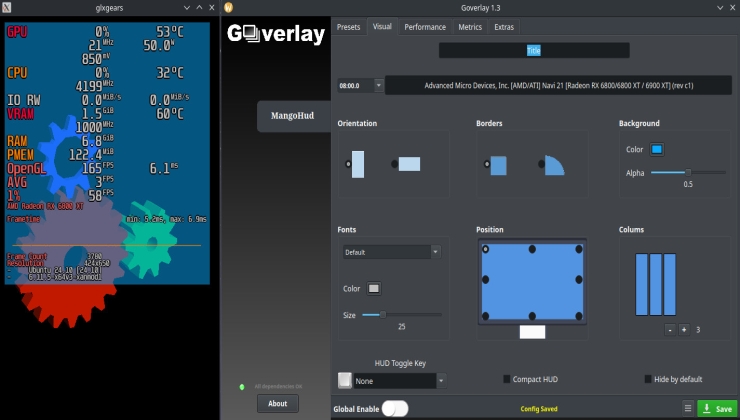Need to be on the bleeding edge of what NVIDIA have to offer? They just released driver version 455.50.03, as part of their Vulkan Beta Driver series. This is actually the second driver released this month, with 455.50.02 appearing on January 19. Here's a look over all that's new in them together.
Today's 455.50.03 release adds in support for these new Vulkan extensions:
- VK_KHR_workgroup_memory_explicit_layout
- This extension adds Vulkan support for the SPV_KHR_workgroup_memory_explicit_layout SPIR-V extension, which allows shaders to explicitly define the layout of Workgroup storage class memory and create aliases between variables from that storage class in a compute shader.
- VK_KHR_zero_initialize_workgroup_memory
-
This extension allows the use of a null constant initializer on shader Workgroup memory variables, allowing implementations to expose any special hardware or instructions they may have. Zero initialization is commonly used by applications running untrusted content (e.g. web browsers) as way of defeating memory-scraping attacks.
-
The January 19 release with 455.50.02 added support for linear images in host-visible video memory, had two Windows bug fixes and one for Linux to fix "an issue with OpenGL where imported Vulkan buffers would fail with GL_OUT_OF_MEMORY when marked as resident".
Reminder: This special Vulkan beta driver is where all the shiny new stuff goes in before making its way into the stable release for everyone. Really, it's mostly aimed at developers and serious enthusiasts. Unless you need what's in them, it's generally best to use the stable drivers.
The newest stable versions of the main NVIDIA driver for Linux are at 460.32.03 released on January 7, 2021 from their "Production Branch" series or 455.45.01 released on October 17, 2020 from their "New Feature" series. Confused? It's a lot of numbers to remember but both Production and New Feature series are fine for normal use.
So, no, I still wouldn't recommend AMD over Nvidia on Linux right now, except if you have a very special reason. Nvidia with Manjaro was great, AMD gives me just headaches.
I miss Nvidia since I switched from Intel/Nvidia to AMD (3700X/RX6800) just because AMD pushes open source. But regarding the "expierience", It's bug hunting again instead of gaming. At least with my VR setup.
So, no, I still wouldn't recommend AMD over Nvidia on Linux right now, except if you have a very special reason. Nvidia with Manjaro was great, AMD gives me just headaches.
On the other hand, I haven't had any issues to speak of with my arrangement. However, I still have a bit older card with established support (Vega 56), I don't have any VR equipment, and I rarely use Proton. I don't know how much difference each of these factors make, but I'm guessing at least one of them is significant.
Last edited by CFWhitman on 9 Apr 2021 at 10:56 pm UTC
At least with my VR setup.VR is rather a special case. I don't think you can reasonably make a general recommendation based on problems with VR.
VR may be the future of gaming, I dunno. But it sure as hell isn't the present of gaming.
I miss Nvidia since I switched from Intel/Nvidia to AMD (3700X/RX6800) just because AMD pushes open source. But regarding the "expierience", It's bug hunting again instead of gaming. At least with my VR setup.
So, no, I still wouldn't recommend AMD over Nvidia on Linux right now, except if you have a very special reason. Nvidia with Manjaro was great, AMD gives me just headaches.
Interesting. I've recently bought an RTX2060 for VR and have been pondering whether I should've bought an AMD instead precisely because of VR and missing features on NVIDIA.
Well, now I'm not so worried any more.
Well, now I'm not so worried any more.
No worry. Just enjoy it, you did everything right. A 2060 should work nicely enough. Even my 1660Ti was good enough to finish HL:A without major PITA.
Happy VR gaming bro.
*Sharp intake of air* Gee, this must be the longest full stop-less piece of text I've ever written in my oh so many years of internet adventures.
Last edited by Nocifer on 26 Jan 2021 at 5:32 pm UTC
Well, ...but also a world where we're gaming not on Windows but on Linux via second-hand tools like Proton and DXVK and that takes its toll on performance as well (and also requires its own separate game of bug hunting), the open source model of having the GPU driver releases ...
Yea, I am am aware that we Linux fans are 2nd class citizens. It's OK. But if Valve recommends AMD vor Linux VR (as they did at least for one game in 2020), I expect it to work. Here Valve made a shit statement. And problems start in the SteamVR home screen at the moment. But I won't go into details as it's not a bug report here.
I expected AMD to be on par with Nvidia in 2021, which is not the case. But I think AMD will get stronger than Nvidia and eventually get better, that's why I will not switch back, for the moment. Just more patience required, I think.
Last edited by dude on 26 Jan 2021 at 6:22 pm UTC








 How to set, change and reset your SteamOS / Steam Deck desktop sudo password
How to set, change and reset your SteamOS / Steam Deck desktop sudo password How to set up Decky Loader on Steam Deck / SteamOS for easy plugins
How to set up Decky Loader on Steam Deck / SteamOS for easy plugins
See more from me